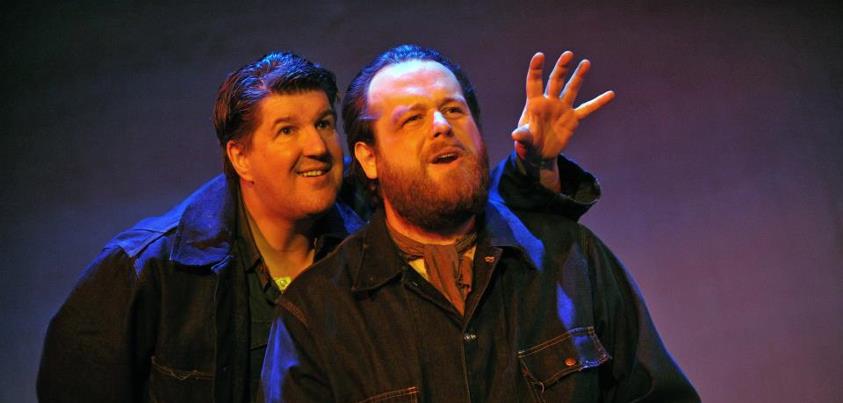
November 27, 2012, by Stephen Mumford
Of Theatre and Men (and Women)
What is the continuing appeal of the theatre? It is a format little changed in centuries, if not millennia. With the advent of cinema, television and YouTube, why do we still bother travelling to a live event and paying the ticket price? Why do the actors so inefficiently perform the same scenes night after night when they could easily record it once and make the play available online?
A few weeks ago I attended a fine performance of Steinbeck’s Of Mice and Men at Nottingham Playhouse, accompanied by my 14-year old son. The night had sold out, as I believe had all others in the run. The excited audience congregated with a sense of occasion and ritual. They came together for a shared experience. But what made that any different from a shared cinema experience? And cinema can do so much that the theatre cannot. The backgrounds are more realistic and vary more often and the editor can select the very best takes for inclusion. In contrast, theatre patrons have to contend with just a few scenes, static backdrops, and the occasional fluffed line. Why would we still see a play in the flesh?
But there, perhaps, is the very point. Each performance on the stage is unique. It is rehearsed, directed and planned, certainly; but the audience are witnesses to a one-off unrepeatable event, just as one cannot step into the same river twice, according to the sage Heraclitus. This event comes complete with flaws and foibles but may also include an especially inspired performance from the cast. One takes a risk in attending the theatre. The thrill of a live performance is seeing the actors in the raw, exposed before us without the option of a second take. It may not be their best performance, but it could be. We commune: the actors and actresses speaking directly for us personally and often taking inspiration and encouragement from our glare and reaction. We will them along to greater heights, having no artificial aid at their disposal but only their true acting abilities. And when it works, the audience takes extra pleasure in the unadorned manner in which the art has been achieved.
Of Mice and Men has a stunning conclusion (which I won’t spoil, for those who don’t know it). Now there are more spectacular climaxes on the cinema screen: it was hardly Avengers Assemble. And yet the impact on that theatre crowd seemed more profound. For some moments after the applause had died they were speechless. That the story had been told in this form, played out before our very eyes over two hours, had added to the depth of the experience. And then the ritual was over. We went our distinct ways. We returned to our real lives, the fantasy of the play over; and yet all of us enriched.

[…] wrote about this issue a while ago, prompted by the question of why theatre has survived the invention of film. But another […]